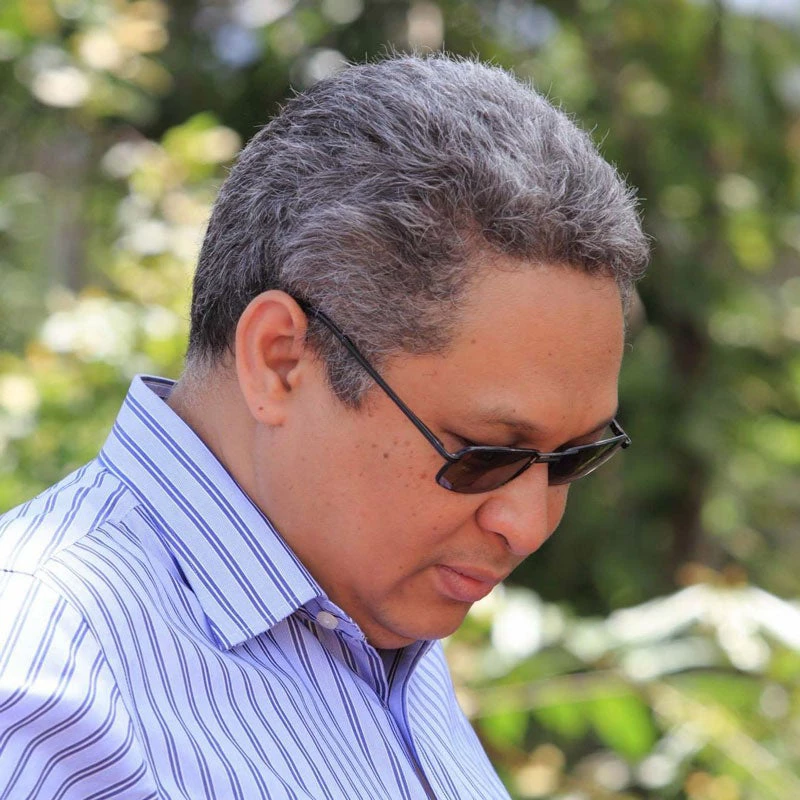 In Madagascar, citizen engagement brings practical solutions to issues related to Covid-19
In Madagascar, citizen engagement brings practical solutions to issues related to Covid-19
I am always proud to hear of young Africans taking up initiatives to address development issues on our continent. I am especially thrilled when brilliant ideas and activities are emerging in my own country, Madagascar.
Recently, I discovered Solidarité Madagascar on social media, a citizen-based organization supporting vulnerable people in the capital city, Antananarivo. The team gathered at the initiative of Dominique Rasanjison, a 31-year-old social designer, and joined by Joan Razafimaharo, Yolène Roth Hanitriniaina Miora and Bakoly Ravoniarisoa.
Through their work, these five young Malagasy have brought to life these great words by the American novelist, Nathaniel Hawthorne : “generosity is the flower of justice.”
They found an answer to a question that is now top of mind of billions of people all over the world: how can the COVID-19 (coronavirus) be transformed from a threat into an opportunity? But unlike business people who are trying to find business opportunities and make money, they spent their time and resources to serve the country’s most vulnerable people.
Like in several countries all over the world, the stay-at-home policy was among the first decisions taken by the authorities of Madagascar to protect citizens. However, the implementation appeared to be difficult since the very first days, for a very obvious reason: millions of people are taking one day at a time. Therefore, staying at home just implies no money at the end of the day, and no money implies no food. So, how could it be possible to ask people to stay at home, knowing that this means to condemn them to starve to death?
The government was aware of this issue, and did its best to provide social safety nets with the support of its partners, including the World Bank. But unfortunately, the existing system rapidly showed some limitations due to the immensity of the task, and organizing the delivery to so many people in such a short time revealed itself to be a tough challenge. Despite all the efforts, many people were left out of the distribution system.
This is where Dominique and his friends jumped in. On March 23, 2020, they launched a Facebook group to act as a self-help network to feed the vulnerable people during their stay-at-home. The network was based on a very pragmatic concept: collecting donations coming from relatives or acquaintances, and transferring them directly to associations/individuals in relation with vulnerable people.
The Internet was key to raise awareness, mobilize volunteers and organize crowdfunding. In mid-May, 3,900 people, mainly from Madagascar, Europe and North America, had become members of this group, and spread quickly to other cities. To date, more than 3,600 food kits were delivered to people in five cities in Madagascar.
Very quickly, other needs appeared. Another group, Solidarité Soignants was set-up in the wake of Solidarité Madagascar actions. Material needs were quickly identified in hospitals and health centers located in Antananarivo and Toamasina, two towns affected by COVID-19. Solidarité Soignants was able to mobilize small workshops as well as designers with available 3D printers to produce shield masks and other material needed by the caregivers.
The network grew spontaneously through bonds of friendship and "virtual" conviviality, using social media to walk the talk of compassion. For most of the members who did not know each other before the COVID-19 crisis, strong links were forged and more pragmatically, common projects are being prepared when the crisis will hopefully be over. The multidisciplinary team, based on professionals in various fields of expertise, helped a lot.
Joan Razafimaharo, a 38-years old architect, said ”the collective is above all a human experience where the "entry ticket" is a strong desire to help others in a selfless way, as they are not in position to repay you.”
I couldn’t agree more, but they don’t stop there. Beyond the desire to help the others, Solidarité Madagascar is also built on principles including respecting human dignity, prohibiting selfies with beneficiaries during the delivery of help, and the targeting of vulnerable groups that are not reached by the governmental aid. The greatest merit of Solidarité Madagascar lies in one belief: it was possible to build the resilience capacity of Madagascar by mobilizing its own resources.
It makes me proud to see that the traditional values of solidarity and caring for others I thought were fading due to the urbanization of Malagasy society are still alive. And it is a great thing that the message is coming from youth; it is possible to act as a community and watch over the most vulnerable ones.
These young people at the origin of these citizen-based initiatives spent their money, their time, their creativity and their energy to serve others who will never be able to repay them. Looking at this experience throws questions to our face: “And myself, what did I do? What could I do better as a citizen?”
Because there is a true thing: there is so much to do around us, and nobody can say that we have done enough.


Join the Conversation